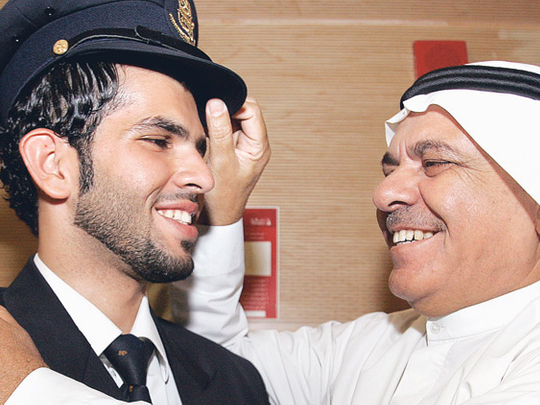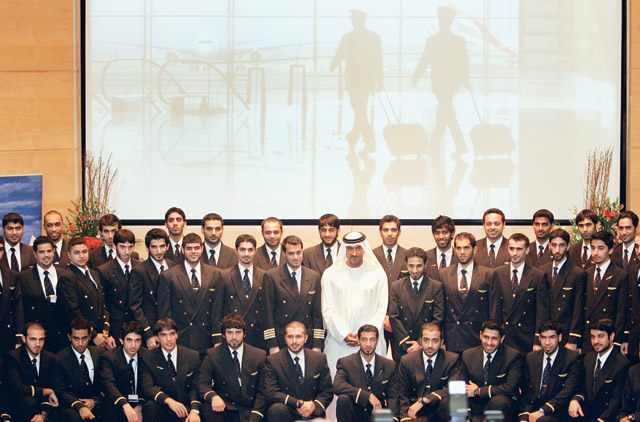
Dubai: A batch of Emirati students on Tuesday graduated from the Emirates Airline National Cadet Pilot Programme. The 46 new high-fliers take the programme's total graduates over the years to 180.
Shaikh Ahmad Bin Saeed Al Maktoum, President of Dubai Civil Aviation Authority and Chairman and Chief Executive of Emirates Airline and Group, presented the graduation certificates and said that the group, under the government, was working to bring more UAE nationals not only to the flight deck but to all levels of the company including management.
"Because of the number of aircraft that we are receiving on average — this year we will have about 18 aircraft — there is an ongoing requirement for Emiratis now and in the future," Shaikh Ahmad said to reporters at the graduation ceremony. "The requirement is there for the new fleet. So we will be able to absorb a big number to come," he said.
The programme involves an expenditure of at least Dh1 million per student during the four-year course, which takes them to train in places including Australia and Spain. Captain Abdullah Al Hammadi, National Cadet Pilot Manager, said due to high demand the programme was willing to accept many candidates.
New orders
"This region, the Middle East, will require 11,000 pilots by 2020, taking into consideration the new aircraft on order.
"If we take 150 [candidates] every year, we will not reach this target," he said. Due to the battery of tests that candidates must undergo, including psychological and health tests, the graduation rate is only about 10 per cent.
Graduate Hamed Bilal Al Shehi said: "It's hard work but you learn a lot.
"You only get this opportunity once in a lifetime," he said. "They want Emiratis to take over [most of the jobs in] the airline eventually."
The pilot programme includes courses in English and aviation science in Dubai over about 12 months. Cadets then spend a year in Australia, as well as a new training centre in Spain.
In the third phase of the programme, spread over six months, the cadets train on flight simulators at the Emirates Training College in Dubai.











